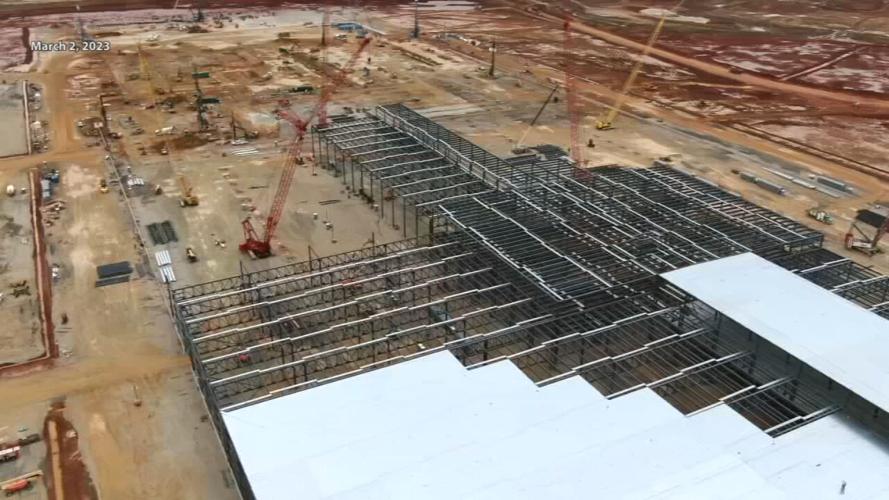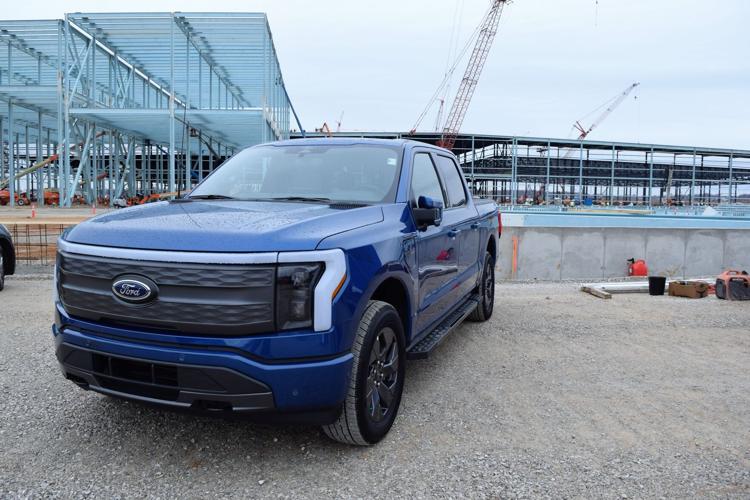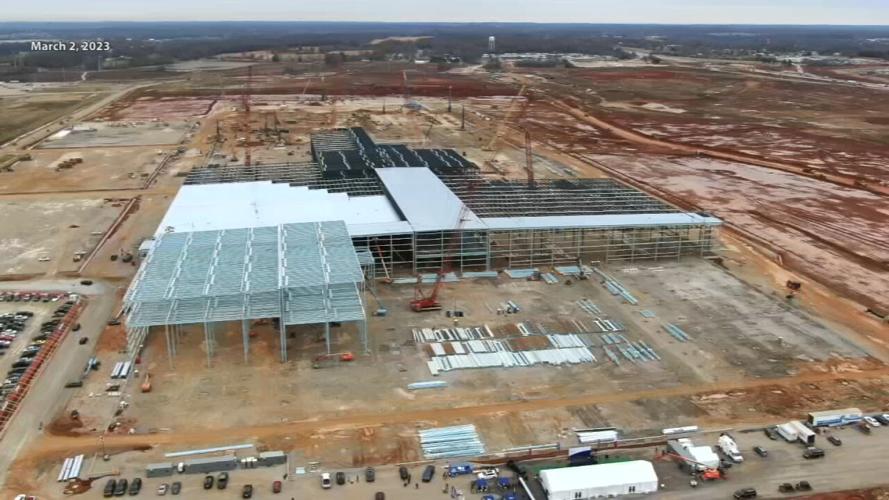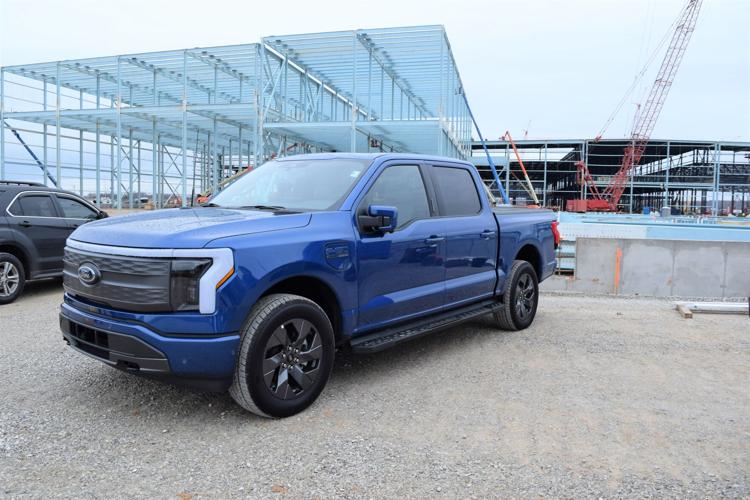LOUISVILLE, Ky. (WDRB) — Rank-and-file workers at the Ford Motor Co.-affiliated electrical vehicle battery plants in Glendale, Ky. will start at $21 per hour, a rate that is significantly less than most hourly workers make at Ford’s auto plants.
The pay does exceed the starting rate at Ford of $18 per hour, however.
Q&A: Here's what we know about the new jobs
Ford and its Korean partner SK On are building two massive battery plants just outside of Elizabethtown, Ky., which will start up in 2025.
Since the $5.8 billion project was announced in 2021, the Ford-SK joint venture — BlueOval SK — had not said what it plans to pay hourly workers, who will account for the majority of the 5,000 jobs that will be created.
That changed Friday, when the company posted formal job applications for “production operator” and “maintenance technician” positions in Glendale. Before that, the companies had a contact form on the website for people to express interest, but no details about the rank-and-file positions.
The operator positions start at $21 per hour with the “opportunity to make up to $24/hour” and include two raises per year, according to the job post.
The technician positions start at $26 per hour. Unlike the operator positions, which require only a high school degree or equivalent, the maintenance jobs require an industrial maintenance certificate, journeyman’s card or an associates degree in a related field, as well as two years of industrial maintenance experience.
By comparison, the average wage of production-nonsupervisory employees in manufacturing in Kentucky is $24.35 as of June, according the U.S. Bureau of Labor Statistics.
A BlueOval SK spokeswoman said the company's pay is competitive and noted other benefits, such as bonuses worth $2,000 to $2,500 per year and working in a climate-controlled. (Many factories are not air conditioned).
"BlueOval SK did wage studies and benchmarking studies with the help of external third-party consultants to determine employee pay," spokeswoman Mallory Cooke said. "Our employees can expect two performance bonuses each year plus low-cost medical premiums, 401(k) matching, Ford vehicle discount benefits, vision, and dental insurance. In addition, operators will receive a year-end bonus ranging from $2,000 to $2,300 and technicians will receive a year-end bonus ranging from $2,200 to $2,500."
The company says workers will start training in battery manufacturing in 2024 ahead of the 2025 launch of production.
“Our first hires will work a standard 40-hour work week while they receive training and learn the battery manufacturing process,” Cooke said. “A formal shift will begin in 2024 once employees are able to partially occupy the plant.”
Preventing 'a race to the bottom'
Battery plant wages have become a flashpoint as the United Auto Workers nears a September deadline to negotiate a new labor deal with Ford and the other Detroit Three automakers.
The UAW wants to represent workers at the joint venture battery plants that Ford and its rival General Motors are standing up in Kentucky, Tennessee, Michigan and Ohio. The union fears what President Shawn Fain has called a “race to the bottom” in job quality at the battery plants.
“We cannot allow the transition to electric vehicles to continue the erosion of job quality in the auto industry. Yet, initial trends are quite troubling,” the union wrote this month in a comment on proposed federal emissions standards.
Ford, on the other hand, views the battery plants as just another of its myriad of suppliers.
At Ford, about 80% of production workers make the UAW-negotiated top-end wage of $32 per hour, according to a Ford source. However, new hires begin at $18 and only reach the high-end rate after eight years on the job.
The long delay in new hires reaching parity with veterans was a concession the UAW made in the years following the Great Recession — one the union is eager to roll back now.
Todd Dunn, the longtime president UAW Local 862 in Louisville, told WDRB News on Friday that the union envisions higher wages for Ford’s existing plants and for the new battery factories.
Asked about the $21 per hour starting rate, Dunn said: “What we want is going to be much better than what we are seeing right now.”
Correction: An initial version of this story misstated one of the parent companies of BlueOval SK. It is SK On, not SK Innovation.



















